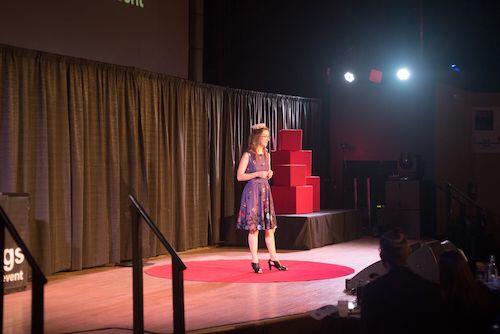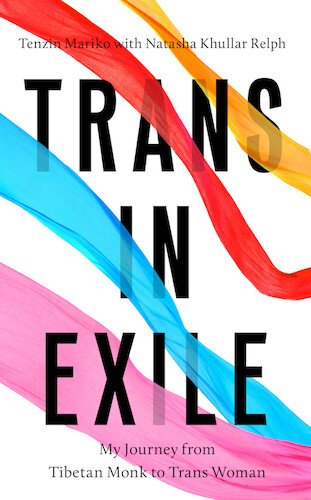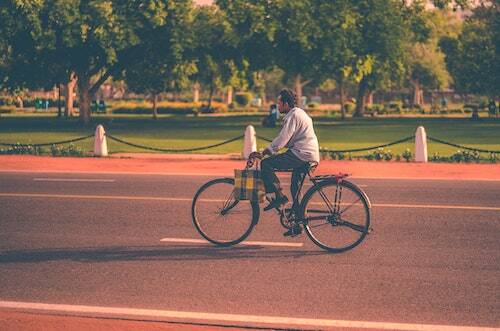
I’m down to 109 emails in my Inbox and I swear, a hundred of them are from my kid’s school. I can’t wait for the summer holidays, if only because it will lead to a cleaner Inbox.
If you’ve written to me and haven’t heard back, you will over the weekend. Sorry for being slow!
Enjoy the issue!
Natasha Khullar Relph
NEWS & VIEWS
Policing the press
A Los Angeles Times reporter (Alene Tchekmedyian) reports on a sheriff (Alex Villanueva) and his volatile and erratic leadership of the LA County law enforcement agency, specifically an attempt to cover up an incident in which a deputy knelt on the head of a handcuffed inmate for three minutes. The sheriff holds a press conference and says he is launching a criminal investigation against the LA Times reporter. There is widespread outrage and criticism. The sheriff denies ever having said such a thing.
The Washington Post says this incident is further confirmation there is now a “brazen trend of officials using government power to punish or push back on journalists for articles they don’t like.” The Post has reported on many other such incidents, including one in which a North Carolina judge not only blocked journalists from his courtroom without explanation for several weeks, but had a newspaper publisher handcuffed and thrown out when he protested.
Tom Rosenstiel, a University of Maryland journalism professor and the former executive director of the American Press Institute told the Post that with many Americans saying they mistrust the press, some public officials think there is a political advantage in attacking journalists directly.
This worrying trend is not limited to the US. The 20th World Press Freedom Index, published by Reporters Without Borders (RSF) earlier this week, says press freedom is classified as “very bad” in a record number of 28 countries.
Twelve countries, including Belarus and Russia, are on the Index’s red list (indicating “very bad” press freedom.) The world’s 10 worst countries for press freedom include Myanmar (176th), where the February 2021 coup d’état set press freedom back by 10 years, as well as China, Turkmenistan (177th), Iran (178th), Eritrea (179th) and North Korea (180th).
SEE ALSO:
The job you never knew you wanted: In the “Books are cool, man” department, there now exists the job of celebrity book stylist—someone who gets paid to help influencers select reading material for them to carry around in public.
The soundtrack to your writing: In analyzing 1,200 playlists, 182,000 songs, and 58,000 artists on Spotify, the team at Preply found that the most popular genres for focusing and productivity are lo-fi, electronic, and ambient. We can only imagine what the research process looked like.
WRITERS WANTED
Erica Verrillo has put together a list of 43 contests accepting entries in May that don’t charge entry fees.
These include:
Undiscovered Voices First Novel Prize. Genre : First novel published in 2021. Prize : $3000. Deadline : May 31, 2022.
Austen Riggs Erikson Prize for Excellence in Mental Health Media. Genre : Nonfiction. “The Austen Riggs Erikson Prize for Excellence in Mental Health Media recognizes a select group of media professionals, including journalists, writers, and others who create exemplary work that contributes to a deeper understanding of and greater public awareness about mental health issues. To be eligible, work must have been written in English, intended for the layperson, and must have been first published/released after April 1, 2020.” Prize : $3000. Deadline : May 15, 2022.
Toyin Falola Prize. Restrictions : Open to Africans between the age of 15 and 35. Genre : Prose (fiction or nonfiction) on theme of Freedom. Prize : $2,500 share between winner and 5 short listed stories. Deadline : May 15, 2022.
ANGELA GILES KLOCKE
ON WRITING ABOUT TRAUMA

An excerpt:
It’s been a long journey with this book because you lived it. And then you had to live through the writing of it. What was that process like and how long did it take?
The process has been like the five stages of grief—denial, anger, bargaining, depression, and acceptance.
I began sharing it in early 2000, soon after my trauma ended [in 1997]. It was a very angry and victim version, as in, look at these terrible things that happened to me. And they are terrible things that happened to me, but I couldn’t share them with any kind of compassion. I would do this to people, too. It was my litmus test. Do you like me? Will you still like me? Can I trust you?
I didn’t realise at the time, of course, that I was working on processing it.
Yes! I did that too. It’s a challenge. Let’s see if you can handle it.
Right. And it’s an unfair measure of how people can accept you, but that’s where I was. And then in writing it, I would story vomit, if you will. I didn’t have to see their faces if they were retreating.
So the book has gone through those phases. Can I be seen? Can I be heard? It just reached a point that it felt like this was the best, safest way that I could tell it and have it do what I actually wanted it to do now that I’m in a healthier place. And that is to help people see what abuse can look like, how insidious it can be. It’s not just “Hi, I’d like to be in your life and date you and punch you in the face.” It grows.
THE WORDLING PICK
Trans in Exile: My Journey from Tibetan Monk to Trans Woman
by Tenzin Mariko with Natasha Khullar Relph
We’re crowdfunding the book that will tell the story of the first Tibetan Buddhist monk in history to have publicly come out as a trans woman.
Check out the various pledge levels and how you can be a part of this project.

WORDLING INSIGHT
When you sit down to write, you don’t always know what will come out of you.
If you let it, sometimes the work that comes out of you is much too personal, much too revealing, much too raw.
It is scary to write, scarier even to share.
You can choose to censor yourself, shove that shit back in and pretend that you didn’t think it, express it, or put it into words.
Or you can release it.
Releasing is the harder choice, the more difficult task.
It is also the only true way to stand in your power.
GLOBAL REPORT
ABU DHABI: When you think book fairs, you tend to think London and Frankfurt, but the 31st edition of Abu Dhabi’s International Book Fair opens on May 23, with 1,000 publishers from 80 countries showcasing their work. The fair is one of the Arab world’s leading bookselling and literary events, and this year, it will be featuring more than 400 events, with appearances by Nobel laureates, industry professionals, authors, and academics from across the globe.
TRINIDAD: “Female Trinidadian writers are having our moment,” writes Monique Roffey in The Guardian. Lisa Allen-Agostini’s novel The Bread the Devil Knead was shortlisted for the coveted Women’s Prize last week and Amanda Smyth made the Walter Scott prize for historical fiction shortlist, the only woman on the list, and the first Caribbean writer ever to be chosen. “… in the last decade Trinidad has produced a host of outstanding female writers,” Roffey says. “It’s a trend that anyone in Caribbean literary circles knows about.”
UKRAINE: Four journalists from The Kyiv Independent—Toma Istomina, Anna Myroniuk, Oleksiy Sorokin, and Anastasiia Lapatina—were named in the Forbes 30 under 30 list. “Less than six months after founding the English-language publication, these Ukrainian journalists have shown bravery, tenacity, sensitivity and impact while reporting on a war in their home country,” Forbes said.
DID YOU KNOW?
Ever looked at an emoji and thought, I could do better than that? Now you can. Unicode’s official online submission window for 2022 is open until July. Wired has a guide on how to submit your idea.
We think we’ll send in “writer staring out of window.”
SHARE THE WORDLING
The writing life wouldn’t be half as fun (or even bearable) without writing friends. Share The Wordling with a writing friend who you can count on to “get it.”
or
Support us by buying us a coffee.
